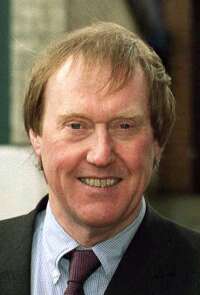|
I was tempted to abandon the first article, and react to his departure instead. But in the end, I decided to wait, take stock and gauge the reaction to the news.
It seems to me that, in the end, the overwhelming emotion was relief, and in some cases, it was delight. Few seemed to mourn his passing – and once his standing with the fans had dropped so low, a man in Watson’s position was doomed. Perhaps his failure to realise the fundamental importance of the fans – both to his own position and that of the club – was his fatal flaw.
But the knee-jerk reaction of the fans cannot tell the full story of the Watson era. Certainly, it sums up the groundswell of opinion which has built up over the past eighteen months – the period in which the clubs fortunes have slipped. Before that, with the club on an upward curve, Andrew Watson rarely made the headlines. Over time, some of the reaction to him has begun to reflect a more balanced view of his record over the full period of his tenure.
Watson arrived to become the club’s first Chief Executive, just as investment began to flow into the club as Barry Kilby and Ray Ingelby took up their positions at the head of a new board. He arrived at a time when Ternent’s Burnley were in the doldrums but just about to turn a corner and gain promotion little over a season later. Facilities from the ground development program of the mid 90’s were the old board’s legacy. It was very much a new dawn at the club, with a fresh optimism: if ever there was a good time to begin the job, this was it.
But it would be unfair to dismiss the man on that basis alone. He had the business acumen to cash in on the new atmosphere at the Turf. Along with Kilby, he breathed new life into an infrastructure which had rarely been effective. Many early moves – such as the cheap kids season ticket, were hailed as a resounding success. Gates hit the highest average level at the club for many seasons.
He exploited the clubs commercial potential, both by maximising corporate revenues, and by tapping into the merchandising potential of the club. The club shop was developed, and new premises opened in the town centre. He was quick to cash in on opportunities – when the high profile signings of Wright and Gascoigne arrived, the club shop was quickly ready with the products to mark the occasion. The ticket office, previously a fairly shabby operation, was turned into the impressive, efficient and helpful system we encounter now. Watson deserves much of the credit for that change.
|
He also claimed the route to success was to increase the wage bill, but you can’t blame him for that philosophy. It was shared by most in football at the time, and most fans. The theory was based on the premise that the game would continue to grow, and that belief in the invincibility of football was deeply held in the game at that time. The idea was that by increasing the wage bill, you would improve the side and therefore results, and attendances and other income would increase as a result, generating cash to increase the wage bill and improve the team once more – and so on. So many clubs believed in that formula that it is impossible to blame Andrew Watson, or even Barry Kilby, any more than almost any other administrator in the game in that era.
But once times became harder, Andrew Watson began to struggle. The crisis which hit football exposed the fallacy in the approach previously adopted by the likes of Watson, and demanded a change of approach – particularly given that it coincided with a natural downturn in performances on the field. In order to bridge the revenue gap, a bit of flair and imagination was required – and the Chief Executive proved adept at neither. His only idea appeared to be to plead poverty, and attempt to tap even more money out of fans of the club. His approach last year, where he refused to countenance altering established season ticket policy, smacked of arrogance and inflexibility.
Moreover, the crisis brought to the surface other flaws in his methods. His style – autocratic, distant from the fans, with the air of a political spindoctor whenever a story broke – had never been exactly popular, but whilst the team is successful, there maybe murmurings of discontent, but never a revolt. When the team is doing well, people are rather more willing to part with their cash; it is when there is less incentive to do so that the Chief Executive really earns his corn. Watson, then, needed to be more engaging towards the fans, and he failed.
He seemed to misjudge the unique features of running a football club. He was aware that, unlike customers of most businesses, they are largely a captive market. They are not going to go elsewhere because the product on offer is better, or cheaper. But Watson seemed to view that as an opportunity to squeeze everything from them. He failed to realise that football clubs exist because of their supporters, and that those supporters regard themselves as the true owners of their club. Chief Executives, and even board members, are simply guardians of the club, who work on the fans’ behalf. Fans want partnership, rather than dictat: instead of appearing to demand from the fans last year, a more conciliatory approach would have brought more success. The result might not have been very different in practice – it would still have involved taking more from the fans – but it would have made supporters feel they were involved and important. Sometimes, that packaging is the most important thing.
|
Now, though, there is a future to plan for, which requires careful stewarding. Mistakes have undoubtedly been made, and lessons must be learnt. The ideal candidate for the vacant position would be an experienced administrator with experience of business decision-making in football, and would have an understanding of the wider game, and more specifically Burnley Football Club. One name which occurred to me was Paul Fletcher, a former Claret who has been involved in stadium development in recent years. If the club was looking to replace Watson, he might in the frame.
But perhaps there is a better option. We want someone who has experience of Burnley Football Club, and business and football in general. It seems to me there are two men ideally suited to the job: Barry Kilby and Ray Ingleby. Both are businessmen with an international reputation, and we believe it was those two men – rather than Andrew Watson - who negotiated the package which brought the club breathing space last autumn. Between the two of them, they have all the attributes, and already it seems that this is the route the club intend to take.
Good. Leave the Watson era behind. And now, as Stan is fond of saying, lets crack on.



